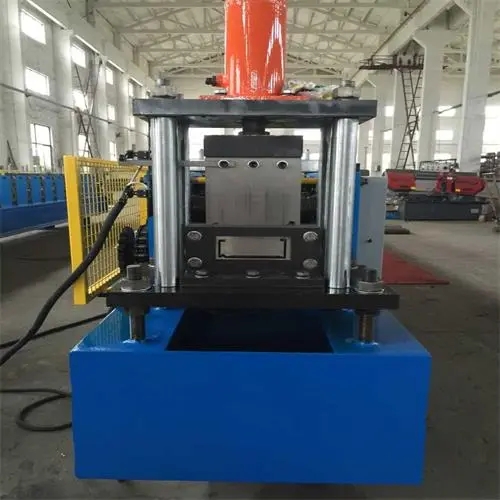
The Bolt Former Machine Enhancing Efficiency in Fastener Production
In the world of manufacturing, precision and efficiency are key to producing high-quality products at competitive prices. One crucial component in various industries is the fastener, which plays a vital role in ensuring the integrity and durability of assembled products. To meet the ever-increasing demand for fasteners, manufacturers have turned to advanced technologies, among which the bolt former machine stands out as a game-changer.
A bolt former machine is a specialized piece of equipment designed for the high-speed production of bolts and similar fasteners. Its primary function is to transform raw materials, typically metal wire, into finished products that meet specific dimensions and strength requirements. The versatility of these machines allows them to manufacture a wide range of fasteners, such as bolts, screws, and nuts, making them indispensable in industries like automotive, construction, and electronics.
The operation of a bolt former machine is a marvel of engineering. It typically consists of several essential components, including a feeding mechanism, a forming mechanism, and a cutting system. Initially, metal wire is fed into the machine, where it is precisely measured and cut to the required lengths. The forming mechanism then shapes the cut wire into the desired thread and head configuration through a series of dies and molds. This process ensures high levels of accuracy and consistency across large production runs.

One of the significant advantages of using a bolt former machine is its efficiency. Traditional methods of bolt production often involve multiple steps and different machines, which can be time-consuming and labor-intensive. However, with a bolt former, manufacturers can streamline the process, significantly reducing production time and costs. Consequently, businesses can respond more quickly to market demands and maintain higher levels of inventory.
Another important aspect of bolt former machines is their ability to produce fasteners with exceptional strength and durability. By employing advanced technologies, these machines can work with various materials, including high-strength alloys and stainless steels, ensuring that the final products meet rigorous industry standards and specifications. This quality assurance is crucial in sectors such as automotive and aerospace, where even minor failures can lead to catastrophic outcomes.
Moreover, modern bolt former machines are equipped with advanced automation and control systems that enhance their performance. Features such as programmable logic controllers (PLCs) allow operators to easily adjust settings and monitor production in real-time. This level of control minimizes waste and ensures that the finished products maintain consistent quality.
As industries continue to evolve, the demand for high-quality fasteners will only increase. The bolt former machine plays a pivotal role in meeting this demand by enhancing efficiency, improving product quality, and reducing production costs. With ongoing advancements in technology, these machines will undoubtedly become even more sophisticated, further shaping the future of fastener manufacturing. In conclusion, the bolt former machine is not just a tool but a crucial asset for manufacturers aiming for excellence in the competitive landscape of industrial production.